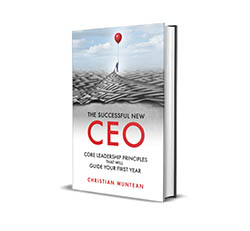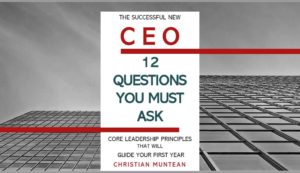Are you easily offensive or offended? If so, here’s what to do.

In high school, the genre of music I listened to was a big deal to me. If someone else criticized it, I took it personally. If someone seemed disinterested, I took that personally.
personally.
In spite of my sensitivity, I was comfortable playing my music loud. Loud in my room. Loud at work. Loud wherever.
Love my music – or else.
Without being aware of it, I had taken music I liked and made it an extension of my identity. I perceived what people said or thought about that music, or those artists, as a comment about me.
Since people comment on or react to music all of the time – I found plenty of opportunities to be offended. I was oblivious to the idea that I might be offensive.
The fact that my own tastes in music wandered all over the map never registered with me. Depending on when you caught up with me in high school, I was listening to Top 40, metal, electronica, blues, “Ethno-pop”, rap, etc.
Good luck keeping up.
The fact that I would easily and happily voice my opinions about the music others listened to also never connected to me. I was a quick critic. And my criticism wasn’t burdened by the need for substance.
Most of the music I listened to, at least when I was younger, was about who I spent time with. Much of my musical journey was really about seeking approval and acceptance.
If someone didn’t like the music – it wasn’t just a rejection of me. It was a rejection of us.
Prickly me.
Offense and Leadership
Offense seems to be in the air. Are people today more offensive than in the past? Or more easily offended?
I don’t know. Maybe both. Maybe neither.
But I do know two things:
- Offensive leaders are less effective.
- Offended leaders are also less effective.
Effective leaders interpret reality, define values, place priorities, make decisions, and confront negative behavior.
Any leader doing what leaders do will run the risk of stepping on someone’s toes. But occasionally rocking the board, or challenging others is different than living in a perpetual state of offense.
Offensive leaders: Some leaders aren’t aware of, become calloused to, or just don’t care about their impact on others. There are offensive leaders. Offensiveness is part of how they lead.
To them, an offense is always other people’s problem. If they weren’t so sensitive or weak, or make mistakes, or imperfect, there wouldn’t be an issue.
There is power in being an offensive leader. Some offensive leaders are intentional. Their offensiveness causes others to react. It keeps people off balance. It’s part of how they play the game.
Others lack self-awareness. They don’t recognize or “own” their impact. They don’t see themselves are responsible for the results they generate. But this blindness isn’t always innocent. Self-deception is a real leadership thing.
In some cases, the offensiveness seems clear – it’s vulgarity, or sarcasm, or belligerent behavior.
In other cases, it’s less clear. It is masked in holding others to account or driving for results.
Offended leaders: Some leaders view disagreement or different perspectives & priorities as personal attacks. They can become offended leaders.
There is tremendous power in being offended. A leader can generate a significant amount of personal energy from “being the offended party.” All kinds of behaviors are justified when someone is properly offended.
Power is gathered through gathering similarly offended people. These leaders nurture the offended state – in themselves and others. The more offense there is, the more power there is.
Some of these leaders are very insecure. Anything that isn’t an affirmation is viewed as an attack. This can be as simple as even asking questions. Or exploring alternatives. Or having differing interests.
Some of these leaders fail to manage their own time and energy well. As a result, they can begin to feel resentful of others. Especially those who place (what feels like) demands on either their time or attention. It’s easy to blame as opposed to recognizing poor self-management.
If One, Then the Other
This isn’t universally true. But it is frequently true:
- Offensive leaders (in spite of the appearance of thick skins) are often sensitive and easily offended. They have their soft spots and much of their offensiveness is about protecting those.
- Offended leaders (in spite of their appearance of caring about justice, fairness, etc.) can justify railroading or passive-aggression. They may offend and they may feel justified in doing so.
If you are one, you are likely the other.
Can you see it?
Because we can all be offensive or get offended, it’s worth exploring if we have blind spots.
Here’s what’s tricky:
If we are offensive or easily offended – we don’t listen and we’ve taught others not to tell.
That creates a problem.
How to Know the Unknown Unknowns
Coaching
A coaching client recently told me that he wanted a “mirror” on his leadership. He wanted to see what he looked like.
I love that image.
People are the best mirrors for other people. But not all mirrors are equal.
As my coaching clients know, I’ll talk to the people that surround a leader to understand what their leadership looks like.
Since all leadership happens within a relationship, I’m very curious about how others experience their relationship with a leader.
From those conversations, we identify goals.
Then I teach my clients how to have those conversations on their own, on a regular basis. It is powerful and transformative.
And difficult.
It’s challenging to look in the mirror. There is a strong temptation to change the lighting, suck in our guts, or alter the mirror in some way.
The funny thing about mirrors: As much as I might want to hide from how I look – everyone else has already seen it. I’m only fooling myself.
At the risk of shameless self-promotion – engaging a coach is one of the best ways to get a good mirror.
I have two coaches right now. Both work with me in different areas. They see things that I can’t. They help hold me accountable for what I can see but am not acting on.
Peer Mentoring
Another alternative is to build candid, peer-mentoring relationships. Many peers are friends and like to encourage and support each other. That’s good. We need that.
We also need peers who can challenge and mentor us. Sometimes friends are too concerned about protecting the relationship. Or we’ve taught them that certain topics are “off-limits”.
This is where a peer mentoring relationship helps. You can form these groups on your own. But it is often easier and more effective to find one to join.
Personally, I’m a member of three peer mentoring groups. Two of which I pay for. Much of my growth professionally and personally has come from these kinds of groups.
Counseling
If you find that your tendencies to offend or be offended are very deeply seated – consider talking with a professional counselor.
I don’t believe that we always need to understand, untangle, or resolve our pasts to be able to move forward in a healthy way. But… our pasts, our upbringings, traumatic events, or even our biochemistry can impact how we relate to others. And sometimes they do prevent us from moving forward. Or moving forward as quickly as we’d like.
If you think that might be true for you – explore it.
Where should you start?
Before I answer that, let me say this:
You, as a leader, are your greatest tool. The quality of that tool – of your personal wellness, your physical, emotional and relational health, your spiritual vitality – all determine the quality of the work that you do and the ease with which you can do it.
Your investment in yourself is one of the most valuable and high ROI investments you’ll ever make.
My first recommendation is to start with whichever of the options is the most accessible to you right now. If you know of a coach, peer-mentoring group, or counselor – at least talk to them. There may or may not be a fit – but get the ball rolling.
Second, talk to the highest performing and healthiest people you know – and ask them who they talk to. Chances are very high that they are connecting to someone. And that they understand exactly what you are looking for.
Third, reach out to me. I coach high performers – and we often work on blind spots. On occasion, I facilitate peer-mentoring groups.
Take good care,
Christian
Image by Christian West from Pixabay
In the podcast Thought Leaders Driving Returns (TLDR), I’m interviewed by host Hunter Guthrie about how important mindset is in leadership and about effecting cultural change in the face of transition. LISTEN HERE.
Are you interested in learning more about becoming a successful CEO? If so, get a free copy of my book The Successful New CEO. Not a new CEO? I’ve been told by “old hands” that they felt any CEO should read this. So, click here to get your copy today.
by “old hands” that they felt any CEO should read this. So, click here to get your copy today.
Let’s connect.
I’m passionate about helping leaders to create workplaces they love going to and increasing the value of the services they offer. My results-oriented approach is tailored to each client’s specific situation and needs. As a leadership coach, I have developed a wealth of resources to help you and your team grow and become stronger.
Weekly Newsletter – sign up to receive my weekly articles addressing critical leadership challenges and issues.
The Leadership Coach Podcast – In my podcast, we explore effective, high-impact, and enjoyable leadership. Subscribe.
Resources – Visit my website’s Resources page for e-books, webinars, training, and leadership coaching opportunities for you and your team.
There are 𝟭𝟮 𝗰𝗿𝗶𝘁𝗶𝗰𝗮𝗹 𝗾𝘂𝗲𝘀𝘁𝗶𝗼𝗻𝘀 to ask before accepting a new CEO position. Do you know what they are? Instantly download my free e-book here.
Find the value of your company with my free assessment tool: The Value Builder System
The Value Builder System™ is a 13-minute online questionnaire that evaluates your business on the eight factors that contribute more to its attractiveness and value. These factors are scored on a scale of 1-100. Businesses that score over 80 are likely to command 70%-100% higher value than others.
Opportunities
Free Resource: How To Accomplish More Without Doing More is a workbook I created to walk leaders through a process of helping you own your calendar, liberate your time, and still get more done. Download it for free!
Executive and Leadership Coaching: Do you feel overwhelmed? Are you not getting the results you expect from the effort you are putting in? Do you find yourself facing similar challenges time and time again? Would you like to change specific ways of relating or reacting? If you would like to experience predictable, measurable growth Contact me.
Profitable Exit Strategy Workshop: Are you a business owner or partner? Over 55? Starting to think about exiting your business or active management in the next 3-5 years?
- Curious about what your business might be worth?
- Would you like to discover the specific steps you need to take to increase its value and become highly attractive to a buyer?
- Are you planning on handing it over to family or employees and you want to ensure long-term success?
If so, contact me now
Categories
Get Christian’s Newest Book: Train to Lead

Download my free 10-page eBook:
How To Accomplish More Without Doing More:
Eight Proven Strategies To Change Your Life
Discover how to save eight hours during your workweek-even if you're too busy to even think about it. The resource every maxed out executive needs.

